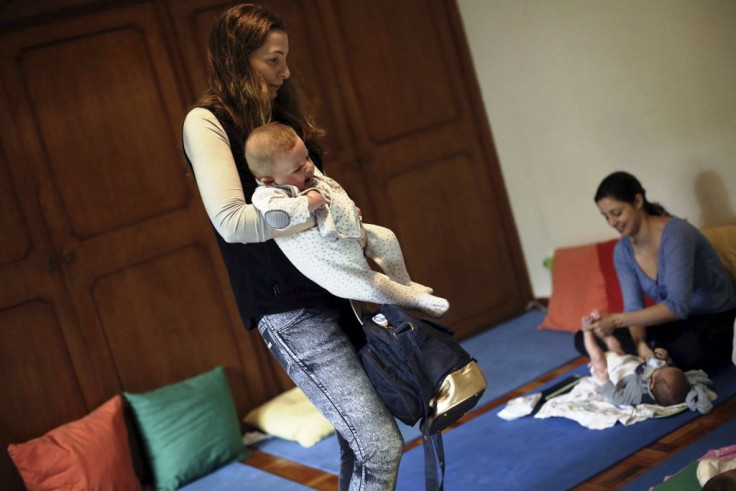Postpartum Depression Linked To Chronic Pain After Childbirth, Study Suggests

Chronic pain after childbirth increases the risk of postpartum depression, according to a new research presented at the ongoing World Congress of Anaesthesiologists in Hong Kong. The study was conducted on 200 healthy women who received the commonly used labor pain relief epidural during the birth of their first child.
Researchers from Duke-NUS Medical School and KK Women’s and Children’s Hospital in Singapore examined the psychological susceptibility of the participants with the widely used Perceived Stress Scale (PSS) and Pain Catastrophizing Scale (PCS). They surveyed the participants over the phone at six to eight weeks of childbirth to determine the persistence of childbirth pain and anxiety status. The researchers also evaluated postpartum depression with the help of a 10-point questionnaire on Edinburgh Postnatal Depression Scale (EPDS).
Of the 200 women, the research team included 138 women for the analysis. Results showed that after four weeks of childbirth, 5.8 percent of the participants had postpartum depression. Moreover, those with persistent pain for more than four weeks scored higher on EPDS as opposed to those mothers whose pain resolved within that time period by a difference of 2.44 mean score. Those with chronic pain after childbirth also scored higher on EPDS compared to those participants who did not experience any pain after delivery. Researchers also found that those with a higher EPDS score had increased levels of stress, increased anxiety level at six to eight weeks after delivery and greater pain vulnerability during the intrapartum period — the stage from the start of labor to the end of the third stage of labor.
“The research findings support the need to address pain comprehensively to lessen the risk of developing [postpartum depression], and a larger study is being conducted to evaluate the impact of pain and PND in pregnant women,” study author Wei Du said in a statement released Thursday.
According to the Centers for Disease Control and Prevention, about 1 in 8 women experience postpartum depression. Symptoms of this depression include feelings of sadness, anger and hopelessness, loss of interest, mood swings, panic attacks and disconnection from baby. In some cases, women suffering from postpartum depression have brief, terrifying thoughts of harming their babies.
Treatment for postpartum depression includes counseling and medication. Those with moderate to severe form of the depression are often advised to combine counseling with antidepressant medications.



























